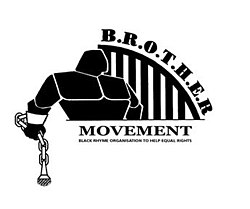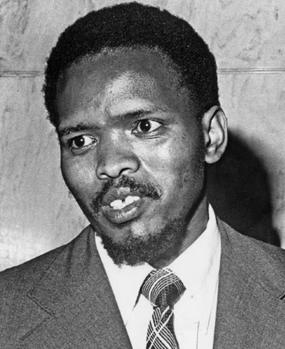
Bantu Stephen Biko OMSG was a South African anti-apartheid activist. Ideologically an African nationalist and African socialist, he was at the forefront of a grassroots anti-apartheid campaign known as the Black Consciousness Movement during the late 1960s and 1970s. His ideas were articulated in a series of articles published under the pseudonym Frank Talk.
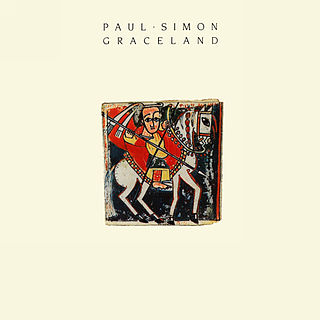
Graceland is the seventh solo studio album by the American singer-songwriter Paul Simon. It was produced by Simon, engineered by Roy Halee and released on August 25, 1986, by Warner Bros. Records. It incorporates genres including pop, rock, a cappella, zydeco, and South African styles such as isicathamiya and mbaqanga.

Zenzile Miriam Makeba, nicknamed Mama Africa, was a South African singer, songwriter, actress, and civil rights activist. Associated with musical genres including Afropop, jazz, and world music, she was an advocate against apartheid and white-minority government in South Africa.
New Zealand hip hop derives from the wider hip hop cultural movement originating amongst African Americans in the United States. Like the parent movement, New Zealand hip hop consists of four parts: rapping, DJing, graffiti art and breakdancing. The first element of hip hop to reach New Zealand was breakdancing, which gained notoriety after the release of the 1979 movie The Warriors. The first hip hop hit single, "Rapper's Delight" by the Sugarhill Gang, became a hit in New Zealand when it was released there in 1980, a year after it was released in the United States. By the middle of the 1980s, breakdancing and graffiti art were established in urban areas like Wellington and Christchurch. By the early 1990s, hip hop became a part of mainstream New Zealand culture.

The Anti-Apartheid Movement (AAM) was a British organisation that was at the centre of the international movement opposing the South African apartheid system and supporting South Africa's non-white population who were oppressed by the policies of apartheid. The AAM changed its name to ACTSA: Action for Southern Africa in 1994, when South Africa achieved majority rule through free and fair elections, in which all races could vote.

Artists United Against Apartheid was a 1985 protest group founded by activist and performer Steven Van Zandt and record producer Arthur Baker to protest against apartheid in South Africa. The group produced the song "Sun City" and the album Sun City that year, which is considered a notable anti-apartheid song.

Apartheid was a system of institutionalised racial segregation that existed in South Africa and South West Africa from 1948 to the early 1990s. It was characterised by an authoritarian political culture based on baasskap, which ensured that South Africa was dominated politically, socially, and economically by the nation's minority white population. Under this minoritarian system, white citizens held the highest status, followed by Indians, Coloureds and black Africans, in that order. The economic legacy and social effects of apartheid continue to the present day, particularly inequality.

The Black Consciousness Movement (BCM) was a grassroots anti-apartheid activist movement that emerged in South Africa in the mid-1960s out of the political vacuum created by the jailing and banning of the African National Congress and Pan Africanist Congress leadership after the Sharpeville Massacre in 1960. The BCM represented a social movement for political consciousness.
[Black Consciousness'] origins were deeply rooted in Christianity. In 1966, the Anglican Church under the incumbent, Archbishop Robert Selby Taylor, convened a meeting which later on led to the foundation of the University Christian Movement (UCM). This was to become the vehicle for Black Consciousness.
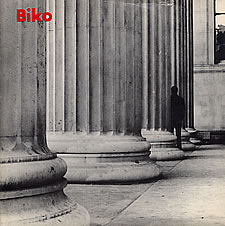
"Biko" is an anti-apartheid protest song by English rock musician Peter Gabriel. It was released by Charisma Records as a single from Gabriel's eponymous third album in 1980.
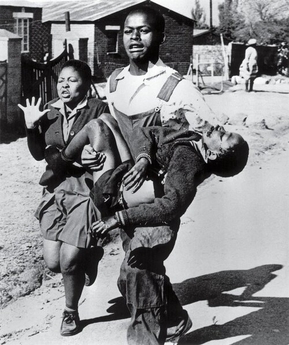
The Soweto uprising, also known as the Soweto riots, was a series of demonstrations and protests led by black school children in South Africa during apartheid that began on the morning of 16 June 1976.

South Africa has a notable jazz scene.
Boom Shaka was a pioneering South African kwaito music group consisting of Junior Sokhela, Lebo Mathosa, Theo Nhlengethwa and Thembi Seete. They released their first single "It's About Time" in 1993, and subsequently released their debut LP, titled "Kwere Kwere" in 1994. Boom Shaka was one of the most successful bands of the mid-1990s in South Africa. Their music was the soundtrack for many young people in the newly democratic South Africa. The group was viewed as representing "the hopes and dreams of a people after liberation". Boom Shaka also achieved international success in London, among other places.

Disinvestmentfrom South Africa was first advocated in the 1960s in protest against South Africa's system of apartheid, but was not implemented on a significant scale until the mid-1980s. A disinvestment policy the U.S. adopted in 1986 in response to the disinvestment campaign is credited with playing a role in pressuring the South African government to embark on negotiations that ultimately led to the dismantling of the apartheid system.

Internal resistance to apartheid in South Africa originated from several independent sectors of South African society and took forms ranging from social movements and passive resistance to guerrilla warfare. Mass action against the ruling National Party (NP) government, coupled with South Africa's growing international isolation and economic sanctions, were instrumental in leading to negotiations to end apartheid, which began formally in 1990 and ended with South Africa's first multiracial elections under a universal franchise in 1994.

Regina Mundi, designed by architect Anthony Noel Errol Slaven, is the largest Roman Catholic church in South Africa. It is located in Rockville, Soweto, a populous black urban residential area within the city of Johannesburg. Due to the role it played as a place of gathering for the people of Soweto in the years before, during, and after the anti-apartheid struggle, it is often referred to as "the people's church" or "the people's cathedral".
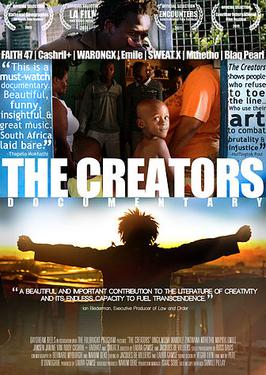
The Creators: South Africa Through the Eyes of Its Artists is a 2012 South African documentary film produced and directed by Laura Gamse which interweaves the lives of diverse South African artists including Faith47, Cashril+, Warongx, Emile Jansen of Black Noise, Markus Wormstorm and Spoek Mathambo of Sweat.X, Blaq Pearl, and Mthetho Mapoyi.

The Free South Africa Movement (FSAM) was a coalition of individuals, organizations, students, and unions across the United States of America who sought to end Apartheid in South Africa. With local branches throughout the country, it was the primary anti-Apartheid movement in the United States. Famous artists also got involved including Keith Haring who handed out over 20,000 'Free South Africa' posters.

Rugby union and apartheid had a complex and supportive relationship. From 1948 to 1994, international rugby relations with the country, and also the non-integrated nature of rugby within South Africa drew frequent controversy. South Africa remained a member of the International Rugby Board (IRB) throughout the apartheid era.

The apartheid regime in South Africa began in 1948 and lasted until 1994. It involved a system of institutionalized racial segregation and white supremacy, and placed all political power in the hands of a white minority. Opposition to apartheid manifested in a variety of ways, including boycotts, non-violent protests, and armed resistance. Music played a large role in the movement against apartheid within South Africa, as well as in international opposition to apartheid. The impacts of songs opposing apartheid included raising awareness, generating support for the movement against apartheid, building unity within this movement, and "presenting an alternative vision of culture in a future democratic South Africa."

The anti-apartheid movement was a worldwide effort to end South Africa's apartheid regime and its oppressive policies of racial segregation. The movement emerged after the National Party government in South Africa won the election of 1948 and enforced a system of racial segregation through legislation. Opposition to the apartheid system came from both within South Africa and the international community, in particular Great Britain and the United States. The anti-apartheid movement consisted of a series of demonstrations, economic divestment, and boycotts against South Africa. In the United States, anti-apartheid efforts were initiated primarily by nongovernmental human rights organizations. On the other hand, state and federal governments were reluctant to support the call for sanctions against South Africa due to a Cold War alliance with the country and profitable economic ties. The rift between public condemnation of apartheid and the U.S government's continued support of the South African government delayed efforts to negotiate a peaceful transfer to majority rule. Eventually, a congressional override of President Reagan's veto resulted in passage of the Comprehensive Anti-Apartheid Act in 1986. However, the extent to which the anti-apartheid movement contributed to the downfall of apartheid in 1994 remains under debate.
